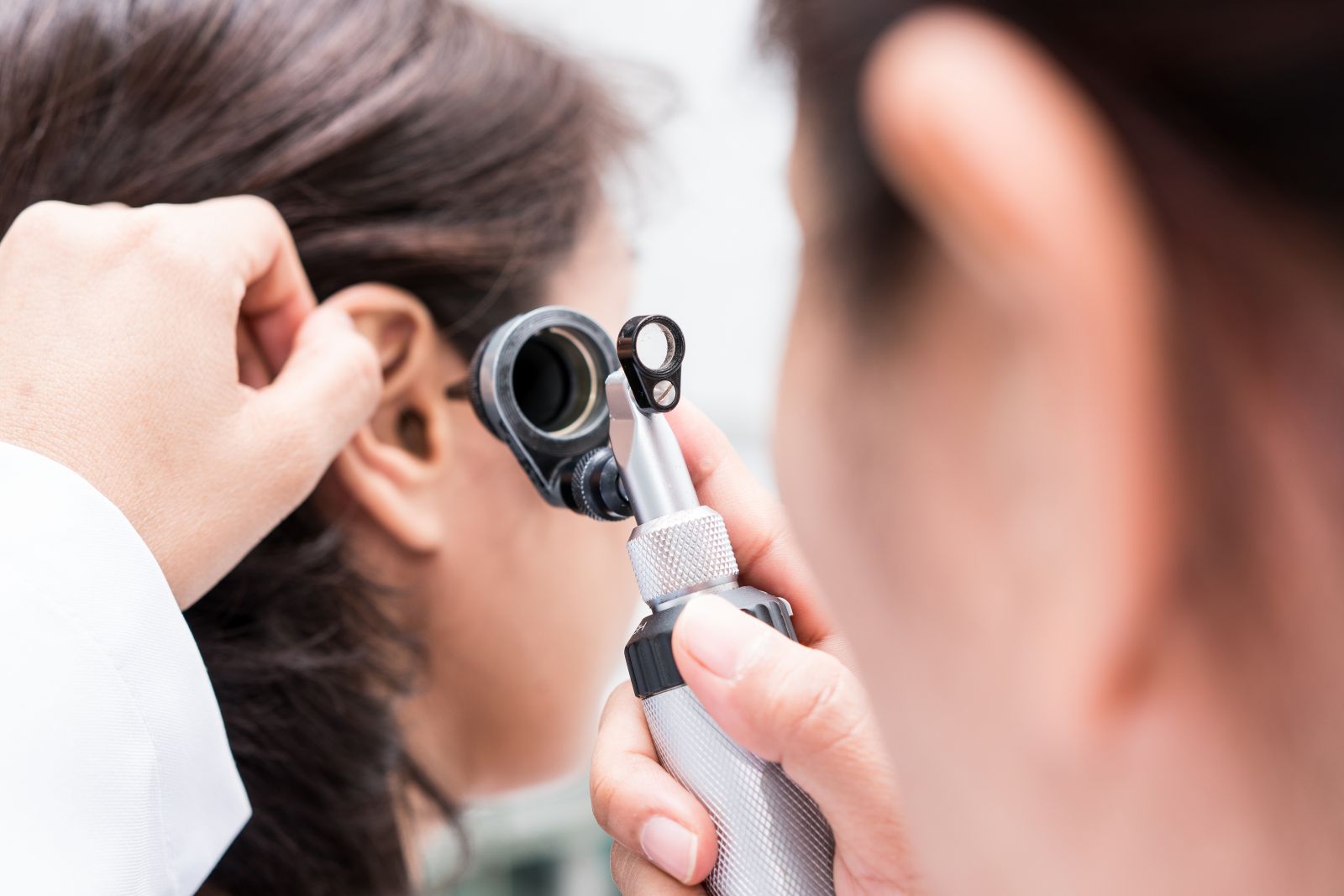Sudden hearing loss, also known as sudden deafness, occurs when one loses their hearing in a short amount of time — either instantly or over a few days.
Sudden hearing loss often occurs in only one ear, and while it is quite rare, it can be a serious medical condition that should be diagnosed and treated by a professional as quickly as possible.
Sudden hearing loss typically (though not always) occurs in only one ear, and is often noticed upon waking up in the morning. Sometimes, it is only noticed when that ear is being used on its own, on a phone call for example. Some hear a loud popping noise before the loss of hearing begins.
In any case, while it is quite rare, sudden hearing loss can be a serious medical condition and should be diagnosed and treated by a professional as soon as possible to avoid further damage.
There are two different types of sudden hearing loss: conductive hearing loss and sensorineural hearing loss.
Conductive hearing loss is typically caused by some kind of buildup in the ear, such as wax or fluid. A cold or sinus infection may also be the culprit. This type of hearing loss is temporary and not as serious.

Sudden sensorineural hearing loss takes place in the inner ear and is more serious. It occurs when the sensory organs of the inner ear are affected and is sometimes accompanied by tinnitus (ringing in the ears), vertigo (dizziness) or discomfort in the ear.
Because the symptoms of conductive and sensorineural hearing loss are similar, it should always be treated as a medical emergency. Seek the help of an auditory professional as soon as possible to determine the type of hearing loss and the necessary treatment. The longer that sudden sensorineural hearing loss goes untreated, the more likely it is to become a permanent issue.
Sudden sensorineural hearing loss (SSHL) is a serious condition that can be caused by a variety of factors. Often, the exact cause of SSHL remains unknown, but some possible causes include:
Bacterial or viral infections
Circulatory issues
Head injuries or trauma
Inner ear issues (Meniere’s Disease, acoustic neuroma)
Autoimmune diseases
Certain drugs
Neurological disorders
If experiencing sudden hearing loss, it’s important to see a hearing professional as soon as possible to determine whether you are suffering from conductive hearing loss or sensorineural hearing loss.
SSHL is typically diagnosed with a hearing test to determine which tones you can hear. Other testing, such as blood tests or MRI’s, may be required depending on the situation.
To treat most forms of SSHL, corticosteroids are the go-to solution. They can be taken in pill form or injected into the ear, and help to reduce inflammation. Corticosteroids are a strong medication that are also used to treat conditions such as asthma, arthritis and allergic reactions.

It is possible that the hearing may be fully restored. In some cases, however, the hearing can only be partially restored, or not restored at all. Hearing aids or other solutions may be required.
The first step in the evaluation of sudden hearing loss is a comprehensive case history, including questions of onset, description, location, possible cause (noise, medications, stress), and severity. This is followed by a comprehensive hearing evaluation and referral to an ENT for further audiological tests such as blood tests, imaging and balance tests to determine the underlying cause.
If you or someone you know is experiencing sudden hearing loss, contact Academy Hearing Centres for a comprehensive hearing evaluation.
-5.png)
Adopting hearing aids early — when hearing loss begins to affect daily life — offers several powerful benefits. Delaying hearing aid use can also have unintended consequences — some of which are hard to reverse later. Here...
Read More-4.png)
One of the biggest questions around hearing aids is how to pay for them, which agencies provide assistance, and who qualifies for which assistance. Let’s break it down! Alberta Aids to Daily Living (AADL) This is...
Read More
Introducing Our New Financing Options At Academy, we are committed to providing our clients with the best possible service and support. We’re excited to introduce our new financing partner Humm to make it easier than ever to get the...
Read More